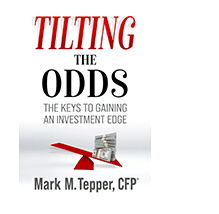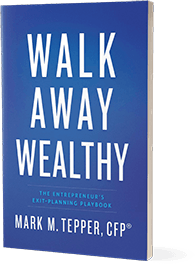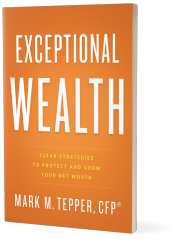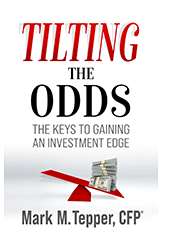A smart investment strategy is one that improves your risk-adjusted return. That’s the primary goal. If your stock picks and decision-making process is not laser-focused on that objective, you are going to wind up making bad choices. This is vitally important as we watch popular, big-name companies like Tesla and Virgin Galactic valuations go sky high. Is there a legitimate reason for those valuations? We dig into what makes a smart investment strategy on this episode.
Outline of This Episode
- [0:16] What I mean when I talk about “gaining an investment edge”
- [4:26] How we choose stocks to ft into our portfolio strategies
- [8:06] Why we are totally open to showing our clients our holdings
- [10:06] The importance of the management team at a company we’re considering
- [15:34] Why we shoot for companies with a sustainable growth story
- [23:42] How we figure out if a company is valued appropriately
What is a “home run” stock and why are they NOT the best approach?
Tesla and Virgin Galactic are companies that presently (February 2020) are what I’d consider “home run” stocks. The stock valuations on these companies continue to skyrocket when in both cases, the profitability of the companies is questionable at best. Tesla has only posted a profit for two quarters in its entire history and Virgin Galactic is still in its conceptual stage as a company, with no service to sell.
We don’t add this kind of stock to the portfolios of our clients because their valuation is not something we can justify. That’s not to say that money will not be made on those stocks. It will definitely happen, it’s just not a company that is predictably producing in a way that gives us confidence in their futures. In this conversation, we explain what we feel is a smarter strategy for investing over the long term.
A smart investment process has to be dynamic
No investment strategy can be a “set it and forget it” thing. That’s especially true when your strategy — like the one we use — has criteria that companies will meet during one stage of their history but not at others. Adjustments to the investment portfolio need to be made to ensure the right kind of stocks are within each client portfolio at any given time.
For example, I have no problem sharing the stocks we’ve picked to be in our client portfolios at this time. I’m not afraid that anyone is going to take my “secret sauce.” Why? Because I know that if anyone were to choose those 50 or so stocks for their portfolio and never touch them, they would underperform the S&P 500 over time. That’s because those companies will not remain at the place they are today. Some will grow and improve, others will decline and stock valuations will reflect that reality.
The strategy we use to choose stocks for client portfolios
Our investment strategy is based on three checkboxes, if you will. If a company is going to be included in a client portfolio it has to tick all three of the following boxes.
1 – The company has a strong, stable management team
GOOD EXAMPLES
Microsoft – The company started out strong and has blazed a trail in the personal and business computing world. But for a while there it became sleepy. But under its new leadership it has pivoted to focus on the cloud and is growing again.
Apple (Tim Cook) – Steve Jobs was a visionary innovator and has truly changed the world with the introduction of the smartphone. But with his departure, the company has continued to grow in spite of the skepticism of critics. Apple’s focus on wearables and recurring revenue, high-margin services has given the company a great road to travel going forward.
BAD EXAMPLE
Tesla – While the company has pretty cool technology and a visionary leader who is good at grabbing headlines, the track record of the business is not consistent. The C-level execs have changed repeatedly for the last few years and as a result, the stability and direction of the company are unclear.
2- The company has a sustainable growth story
GOOD EXAMPLES
Nuance Communications – This is a healthcare company that has developed AI tech that records and documents patient visits for physicians. It’s a huge time-saver for the doctors and at a $10,000/year recurring price tag, could revolutionize the medical industry
Teladoc – This is also a healthcare company but one focused on consumer care and convenience. It’s a platform that provides the ability to make an appointment with a physician via video. There is a very bright future for this type of technology.
BAD EXAMPLES
Tesla – I hope the company succeeds. I really do. But we can’t recommend the stock because the infrastructure isn’t in place. In some parts of the country, a Tesla owner has to drive significantly out of their way to charge the vehicle. The infrastructure needed to stabilize the company and drive growth simply doesn’t exist at this time.
Virgin Galactic – Recently, the company’s stock price has been all over the place. The amazing thing is that this company has never generated even a dollar of revenue. Its primary business is space tourism, which may one day be a thing but currently is not in high demand. The future is cloudy at best for this company.
3 – The company has to trade at a reasonable evaluation
There are many approaches to assessing a company’s stock valuation and some lean heavily on PE Ratios, but we believe they don’t do a valuation justice.
One step in the right direction is to look at the Price to Earnings ratio divided by the expected growth rate on earnings (this calculation provides the PEG ratio).
Another issue to consider is whether the company makes its profit from recurring revenue or non-recurring revenue. Recurring revenue is a better bet toward the future.
GOOD EXAMPLE
Salesforce is a great example of a company with a justified valuation because of its recurring software as a service model and the in-demand nature of the product it provides (CRM and sales software). As well, the process of moving away from Salesforce once your company is a subscriber makes its customer base very stable.
BAD EXAMPLES
Both Tesla and Virgin Galactic are currently experiencing astronomically high valuations but neither company has demonstrated profitability. These companies are not safe bets by any stretch of the imagination.
Resources & People Mentioned
Connect with Derek Gabrielsen
- Twitter: @DerekGabrielsen
- Follow Derek on LinkedIn
- Send Derek a message here
Connect With Mark Tepper
- Twitter: @MarkTepperSWP
- Follow Mark on LinkedIn
- Send Mark a message here
Send your questions and comments to us at info@SWPConnect.com
Subscribe to The Capitalist Investor
Show Notes by
PODCAST FAST TRACK
https://www.podcastfasttrack.com
 Enter your information below, and we will email you our new eBook, Tilting the Odds
Enter your information below, and we will email you our new eBook, Tilting the Odds




